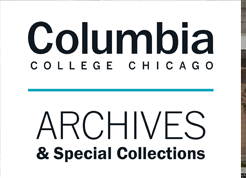Document Type
Article
Loading...
Publication Date
Fall 2009
Keywords
African National Congress, African American Solidarity Committee, African Liberation Support Committee, Lisa Brock, Council on African Affairs, Cuba, Democratic National Convention (1968 : Chicago, Ill.), W. E. B. DuBois, William Edward Burghardt DuBois, Frente Nacional de Libertacao de Angola, Martin Luther King Jr., Nelson Mandela, Movimento Popular de Libertacao de Angola, Prexy Nesbitt, Pan Africanist Congress, Portugal, Danny, Schecter, Unaio Nacional para a Independencia Total de Angola, Malcolm X, Zimbabwe African People’s Union
Disciplines
African American Studies | African History | African Languages and Societies | American Politics | Civic and Community Engagement | Cultural History | History | Inequality and Stratification | International Relations | Other Political Science | Place and Environment | Political History | Political Science | Political Theory | Race and Ethnicity | Race, Ethnicity and Post-Colonial Studies | Work, Economy and Organizations
Abstract
Length: 98 minutes
Oral history interview of Otis Cunningham by Danny Fenster
Mr. Cunningham begins by explaining what it was like growing up amidst the Civil Rights Movement in Chicago, witnessing the reactions to the assassinations of Malcolm X and Martin Luther King, Jr. He explains how he first became involved in activism for African liberation movements when he joined the African-American Solidarity Committee where he served on the editorial board of their journal and he elaborates on the work they did. He recalls the social gatherings that sprung up through the movement. He explains the complicated history and relationships between different players and organizations (e.g. Pan Africanist Congress, African National Congress, African Liberation Support Committee, ect.) in South Africa, the U.S., and abroad in the anti-Apartheid movement. He explains how he got to know his future wife, activist and historian Dr. Lisa Brock, through their shared ideological views. He elaborates on the activism work he did through the AASC and elsewhere, the anti-Apartheid activities surrounding the universities, and the effect Reagan’s presidency Mandela’s release from prison, and Harold Washington’s election as mayor had on the movement. He recalls Mandela’s visit to the U.S. and the media’s portrayal of him. He concludes by reflecting on the problems with many Americans’ political views and the healthcare system, drawing parallels between this and other countries’ systems.
Recommended Citation
Fenster, Danny. "Interview with Otis Cunningham" (Fall 2009). Oral Histories, Chicago Anti-Apartheid Collection, College Archives & Special Collections, Columbia College Chicago. http://digitalcommons.colum.edu/cadc_caam_oralhistories/3
Creative Commons License

This work is licensed under a Creative Commons Attribution-NonCommercial-No Derivative Works 4.0 International License.
Included in
African American Studies Commons, African History Commons, African Languages and Societies Commons, American Politics Commons, Civic and Community Engagement Commons, Cultural History Commons, Inequality and Stratification Commons, International Relations Commons, Other Political Science Commons, Place and Environment Commons, Political History Commons, Political Theory Commons, Race and Ethnicity Commons, Work, Economy and Organizations Commons



Biography and Comments
Otis Cunningham is an activist, health worker, and life-long Chicagoan. He supported numerous liberation movements in Africa, Cuba, Nicaragua, and others in the 1960’s and 1970’s. He served on the African American Solidarity Committee editorial board and was co-editor for the magazine African Agenda. He is married to historian Dr. Lisa Ann Brock. More recently, his and his wife’s activism has focused on educating people on circumstances in Cuba.
The interviewer conducted this oral history as part of his/her coursework for the Fall 2009 class, Oral History: The Art of the Interview. This interview supports the scope and content of the Chicago Anti-Apartheid Movement Collection at the College Archives & Special Collections department of Columbia College Chicago. Contact archives@colum.edu for more information and to view the collection.